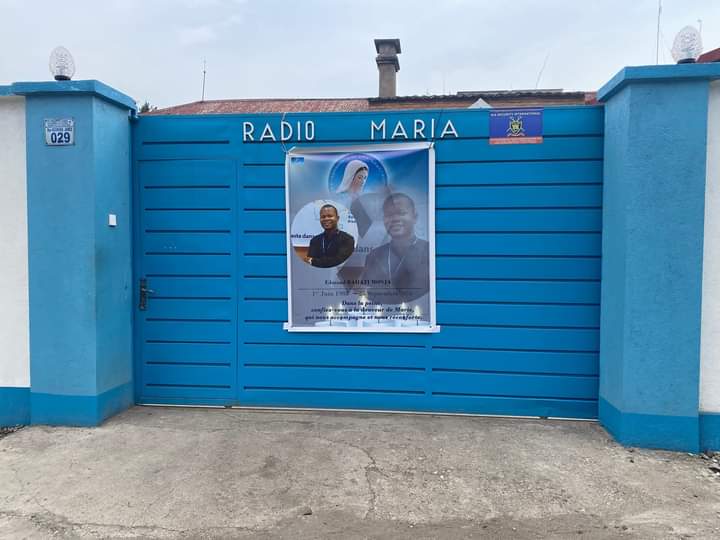
The Educational Crisis in the Context of War
The city of Goma, located in the east of the Democratic Republic of Congo (DRC), embodies a worrying paradox
Cradle of a lively and dynamic population, it is nevertheless immersed in a climate of violence and crime that seems to become the norm. Every day lives are taken away, families devastated and hopes for justice dwindle in a heavy silence.
Goma, once a city of hope and resilience, is now trapped in endless violence and institutionalized impunity. The murder of Edmond Bahati is only a symbol of this tragic reality. In addition to the aggression by the M23 rebel movement, which has caused thousands of deaths and internally displaced people around Goma, today the city has become the center of growing insecurity which causes innocent deaths every day.
The murder of Edmond Bahati Monja, coordinator of the Maria radio station in Goma, killed in Ndosho district while returning home on 27 September, and that of a young girl killed in Himbi district by armed robbers on 1 October are just the latest examples in a long list of crimes that remain unanswered.

A murder that shakes the city
Edmond Bahati was just a commoner. As coordinator of Radio Maria, he embodied a voice of hope and faith for many Goma residents. His brutal murder left the community in shock, but above all immersed in incomprehension. Why him? Why this heinous crime? And above all, where is the justice? Although the security services have captured the perpetrator and accomplice of this crime, Bahati’s family, as well as his colleagues, find themselves trapped in a vortex of pain and frustration.
His murder is symptomatic of what ails Goma: an institutional indifference that leaves criminals free and grieving families without support. Despite the mobilization of civil society, the tributes paid to Bahati and the calls for action, there is a great fear that this crime will fall into oblivion, like so many others before it.
The increase in crime on the streets of Goma
It is not the first time that Goma has been the scene of inexplicable and often unpunished violence. Reports of murders, armed robberies and assaults are increasing with alarming frequency. On the night of October 1st another tragedy occurred: a young girl was killed by thieves who were trying to track down a phone card dealer. He was just an innocent victim caught in a trap he could never have foreseen. This drama highlights the omnipresent violence that reigns in the streets of Goma.
The inhabitants live in constant fear, in psychosis. They don’t know if they will return home safely after a day of work or a simple trip. Times after 6pm have become uncertain for the safety of people and their belongings. The police, who are supposed to protect them, seem helpless in the face of the scale of the situation. Sporadic patrols, rampant corruption and a dire lack of resources make Goma a breeding ground for criminals.
All of this is just the result of a failed justice system. The feeling of impunity that reigns in Goma is largely fueled by the failure of the judicial system. Many cases of murder, violence and theft never reach court. The case of Edmond Bahati and the murdered girl are unfortunately no exception. The people of Goma are disillusioned with a system that does not seem to live up to its responsibilities.
Investigations are often bungled, evidence gathered poorly and potential witnesses silenced for fear of retaliation. As a result, justice is delayed, sometimes forever. Criminals know they can act without fear of retaliation. This climate of impunity contributes to the increase in crime, as each unanswered murder sends a clear message: in Goma, human life has lost its value.

Indifference to the pain of the victims
Even more disturbing than Goma’s skyrocketing crime rate is the growing indifference to the victims’ pain. Violence has become so common that tragedies that once rocked the city now seem like just another fleeting story on the local news. Murderers like that of Edmond Bahati or this young girl often make only a few headlines before being swallowed up by the news, leaving the victims’ families in heartbreaking loneliness.
Every life taken is a tragedy, but how long will the names of Bahati and this young woman resonate in our memories? In a city where violence is the daily bread, oblivion seems to be the only response that society is ready to offer. The inhabitants, caught in a survival routine, seem resigned to accepting that justice, for them, is just a distant illusion.
The murder of Edmond Bahati and many other innocent people in Goma raises profound questions about the future of this city and, more generally, that of the DRC. If local and national authorities do not quickly take measures to restore trust in judicial institutions and restore security, the situation risks continuing to deteriorate. But there is still a glimmer of hope: that the voices of the victims will not be silenced in indifference and that, through collective awareness, a safer and more just future can take shape.
Goma deserves better. Its residents deserve better. They deserve to live without the fear of being the next victim of indiscriminate and unanswered violence. Justice must not remain an empty promise. It must become reality, for Bahati, for the murdered girl and for all the other lives cut short in indifference. It is a daily struggle, a struggle for human dignity and peace, a struggle that must not be forgotten. Justice must finally be done for all these innocent people who have fallen into oblivion.
Images
- Rodrigue Bidubula
